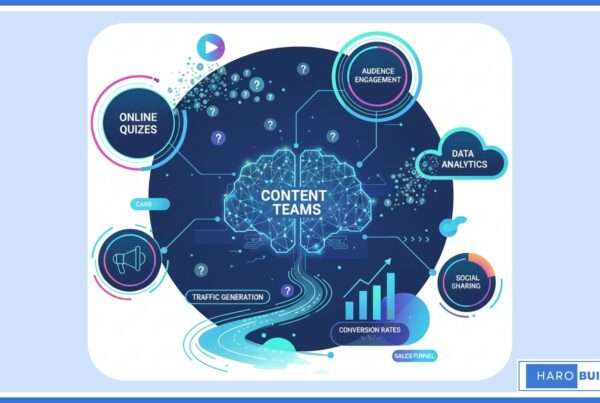
Are you struggling to increase backlinks to your website despite creating valuable content? High-quality backlinks significantly improve search engine rankings, yet many sites fail to attract them naturally. Without the right strategies, your organic traffic and online presence may remain stagnant, affecting your visibility in the SERPs. The good news? Link-earning strategies can help you get links organically while building relationships with high-authority sites.
From crafting shareable infographics to producing niche-specific content, these techniques make it easier for others to link to your site naturally. This article provides a complete guide to proven methods that attract links and boost your number of backlinks effectively.
What is Link Earning?
Link earning is the process of naturally acquiring backlinks to a website by creating valuable, shareable content that others link to voluntarily. Unlike traditional link-building, which often involves outreach and requests, link earning focuses on attracting links organically through high-quality and engaging content. This approach is considered a cornerstone of white-hat SEO because it emphasizes earning links rather than artificially building them.
Link earning is a sustainable, ethical strategy for boosting website authority by prioritizing value and relevance. It focuses on creating and sharing content that people naturally want to link to, improving a website’s authority, visibility, and search engine rankings.
Difference Between Link Building and Link Earning
| Aspect | Link Building | Link Earning |
|---|---|---|
| Definition | Actively pursuing backlinks using outreach methods | Creating valuable content that naturally attracts backlinks |
| Approach | Involves direct requests (e.g., guest posts, link exchanges) | Involves no direct outreach; relies on content quality |
| Feel | Can sometimes seem forced or transactional | Feels organic and earned |
| Primary Focus | Quantity of links | Quality and value of content |
| Examples | It can sometimes seem forced or transactional | Infographics, original research, in-depth guides |
| Long-Term Impact | May not lead to lasting SEO benefits | Builds authority and sustainable organic traffic |
| Link Type | Often artificial or manually placed | Natural links from relevant and authoritative sources |
| SEO Benefit | Can be short-term and risky if not done properly | Strengthens domain authority and improves SERP rankings over time |
What are the Benefits of Earning Links for Your Website
1. Improved Search Engine Rankings:
Earning links from high-authority websites signals search engines about your content’s relevance and quality. This improves your rankings on search engine results pages, making your site more visible to potential visitors. A higher ranking attracts organic traffic and positions your website as a trustworthy source, significantly boosting its online presence and reach.
2. Enhanced Credibility and Authority:
When reputable websites link to your content, it builds trust and credibility with your audience and search engines. These endorsements position your website as an authoritative source in your niche, which is essential for long-term success. This credibility extends to your brand, increasing its perceived value among users and other businesses alike.
3. Increased Organic Traffic:
Links from authoritative websites drive targeted visitors to your website who are genuinely interested in your content. This type of organic traffic is more likely to engage with your content, explore your offerings, and convert into loyal customers. Earning links is an effective way to increase visibility and attract relevant, high-quality traffic.
4. Stronger Backlink Profile:
Earning natural links from reputable sources strengthens your backlink profile, which is a critical ranking factor for search engines. A diverse and high-quality backlink profile signals to search engines that your website is credible and valuable. This improves SEO performance and establishes a solid foundation for future content optimization efforts.
5. Higher Engagement Rates:
Content that earns links is often engaging, informative, and relevant, encouraging users to spend more time on your site. Longer user sessions and increased interactions, such as shares and comments, positively impact your website’s performance metrics. High engagement rates also demonstrate to search engines that your content is valuable and worth promoting.
6. Sustainable Growth:
Unlike traditional link-building methods, earning links focuses on delivering long-term value by adhering to search engine guidelines. This sustainable approach reduces the risk of penalties while ensuring consistent growth in rankings and traffic. By prioritizing quality over quantity, link earning creates a reliable foundation for continued online success.
7. Cost-Effectiveness:
Earning links is more cost-effective compared to traditional link-building campaigns, which often involve paid placements. By focusing on creating high-quality, shareable content, businesses can reduce marketing expenses while achieving lasting benefits. This approach aligns with modern digital marketing strategies that emphasize value and authenticity over transactional efforts.
8. Collaborative Opportunities:
Earning links fosters connections with other businesses, bloggers, and content creators in your industry. These relationships can lead to future collaborations, such as guest posts, co-marketing campaigns, or partnerships. Building these connections not only helps earn links but also strengthens your brand’s network and influence within your niche.
9. Enhanced Brand Awareness:
Links from authoritative websites expose your brand to a wider audience, increasing its recognition and reach. This visibility builds trust and encourages users to engage with your content, products, or services. Enhanced brand awareness through earned links also helps differentiate your business from competitors and reinforces your reputation as a leader.
10. Better Conversion Potential:
Traffic from authoritative sources often consists of users who already trust the referring website, making them more likely to convert. Whether they sign up for a newsletter, make a purchase, or share content, these visitors are highly valuable. Earning links ensures that the traffic driven to your site is both relevant and ready to engage.
The Best Link Earning Strategies for Your Website
1. Create High-Quality, Link-Worthy Content:
High-quality content is the backbone of a successful link-earning strategy. Content that educates, entertains or solves a specific problem naturally attracts links. Start by researching your target audience’s preferences, pain points, and interests to create content that resonates with them. Ensure that your content offers unique insights, actionable advice, or data that readers can’t easily find elsewhere.
Focus on creating evergreen pieces like how-to guides, research-based articles, or comprehensive industry reports. Use visually engaging formats like infographics or videos to increase shareability. Consistency in delivering valuable content builds trust and encourages other websites to link to your material organically over time.
2. Leverage Guest Blogging Opportunities:
Guest blogging is a proven way to earn high-quality backlinks while building your authority in your niche. Begin by identifying reputable websites in your industry that accept guest posts. Use tools like Ahrefs or SEMrush to assess their domain authority and audience relevance. Craft personalized pitches for the site owners, emphasizing the unique value your proposed article will bring to their audience.
Write articles that align with the host website’s tone, style, and audience expectations while naturally including links to your site. Building relationships through guest blogging not only earns backlinks but also expands your brand’s visibility and credibility.
3. Utilize Digital PR and Outreach:
Digital PR and outreach are essential tools for earning high-value links from authoritative websites. Start by creating content that has the potential to go viral, such as original research, infographics, or thought leadership articles. Build relationships with journalists, bloggers, and influencers by engaging with them on social media or through email outreach.
Platforms like HARO (Help a Reporter Out) can connect you with journalists looking for expert opinions, offering a chance to earn backlinks. Regularly monitor industry trends to create timely content that aligns with current discussions, increasing your chances of being featured on popular websites and earning links.
4. Build Resource Pages for Link Earning:
Resource pages are curated lists of valuable links, tools, and content within a specific niche, making them a great target for earning backlinks. Search for existing resource pages relevant to your industry using terms like “best [industry] resources.” Analyze these pages to identify gaps your content can fill, and then reach out to webmasters with a personalized pitch explaining why your content adds value to their resource list.
Ensure your content is high-quality, comprehensive, and genuinely helpful. Consistently targeting resource pages helps establish your website as a trusted source in your niche while driving referral traffic and earning links.
5. Promote Content Through Social Media Channels:
Social media platforms play a pivotal role in amplifying the reach of your content, increasing its likelihood of earning backlinks. Share your articles, videos, or infographics on platforms where your audience is most active, such as LinkedIn for professional content or Instagram for visually engaging posts. Participate in niche groups or forums to share your expertise and link back to your content naturally.
Collaborate with influencers to amplify your content’s reach. Use analytics to track the performance of your posts and refine your strategy. By increasing your content’s visibility, social media enhances its potential to earn organic backlinks.
6. Conduct Original Research and Publish Findings:
Original research serves as a powerful magnet for backlinks because people love citing credible data. Start by identifying topics relevant to your industry where data gaps exist. Conduct surveys, analyze trends, or collect unique insights that provide real value to your audience. Present your findings in engaging formats like whitepapers, reports, or interactive infographics.
Share your research widely through industry publications, social media, and email newsletters. Encourage others to cite your research by making it easily accessible. Original, data-driven content not only attracts backlinks but also positions your website as a thought leader in your industry.
7. Repurpose and Update Older Content:
Repurposing and updating existing content ensures it remains relevant and continues to attract backlinks. Start by identifying your best-performing content using analytics tools. Update outdated information, add fresh insights, or incorporate new multimedia elements like videos or infographics. Transform blog posts into different formats, such as podcasts, slideshows, or social media snippets, to reach new audiences.
Re-promote updated content through your email list and social media channels. By keeping your content fresh and aligned with current trends, you enhance its value and visibility, encouraging other websites to link to it as a reliable and up-to-date resource.
8. Monitor and Reclaim Broken Links:
Broken links present an excellent opportunity to earn backlinks while helping website owners improve their user experience. Use tools like Broken Link Checker or Ahrefs to find broken links on websites within your niche. Identify content on your site that serves as a suitable replacement and reach out to the webmaster with a polite and personalized email.
Explain how your content can fill the gap and enhance their site’s value. Follow up if necessary to ensure the link is replaced. Regularly monitoring and reclaiming broken links helps build your website’s authority and strengthens your overall link profile.
Why Link Earning Is the Future of SEO
Link earning is becoming a cornerstone of modern SEO, shifting focus from traditional link building tactics to a more organic strategy. Unlike older methods that rely on outreach and direct requests, link earning is about creating valuable content that naturally attracts backlinks. When your content resonates with your audience, reputable websites are more likely to reference it, enhancing your site’s authority and aligning with Google’s preference for genuine engagement.
While traditional link building often overlooks relationship-building, link earning emphasizes trust and relevance. It may seem simple, but successful link earning requires a thoughtful approach that prioritizes quality over quantity. By consistently producing informative and engaging content, you increase your chances of gaining links from news sites, blogs, and other authoritative sources. This approach not only improves your backlink profile but also boosts visibility, strengthens your brand reputation, and drives meaningful traffic. Ultimately, link earning supports a more sustainable and strategic digital marketing plan.
Conclusion
Building high-quality backlinks through effective link-earning strategies is essential for improving your website’s visibility and online presence. By focusing on valuable content that naturally attracts links, you create a sustainable path to higher rankings in the SERPs. Techniques such as crafting niche-relevant infographics, guest posts, and high-quality content help you get links while maintaining authenticity. Remember, earning links naturally not only enhances your authority but also drives consistent organic traffic. With the strategies shared in this article, you’re equipped to increase your backlinks effectively. Which of these link-earning techniques will you use to strengthen your site’s online presence?
FAQs
What is a link on a website?
A link connects one webpage to another, guiding users to related or additional information.
Why are links important for websites?
Links help users navigate and allow search engines to discover and rank web pages effectively.
What types of links are there?
Links include internal (within the same website) and external (linking to another website).
How do links affect online visibility?
Links increase visibility by connecting content and improving a website’s credibility and search rankings.
What is the role of links in user experience?
Links make content more accessible and guide users to relevant information quickly.



